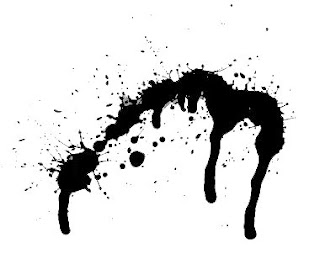To the Pen, which sits on my kitchen table, whom I formerly held in such high regard,
I have lately come to hold the opinion that you are, I dare say, a bad pen. A loathsome pen. A pen which has, instead of fluid ink, naught but malice at its core.
Further, I believe you take great pleasure in your undermining of my manhood, and my intentions, and it is in this action that I have come to know your true, despicable nature. You are a foul and wicked pen.
You will recall, surely, that it was but a short while ago when I felt quite differently towards you - when I had showered you with nothing but genuine affection and made known to you my high regard for your penliness.
“My sweet stillo,” I would call you, for I did at the time see nothing in you but sweetness, and kindness, and how verily I was deceived.
In repayment for my affections, you have ruined me, pen.
I must ask, rhetorically, for I know you will not see fit to respond to my pleadings with anything but cold disregard, what I did to incite such unkindness in you, for in my recollections I have only the memory of loving feelings and acts of devotion towards you. Did I err in the execution of my doting, or fail to communicate my friendship, nay, my love? For I think I did love you, pen. How I loved you.
I would often think upon your graceful form, your ready mark, your yielding flow of jetty ink. Some nights I would lie awake, kept up by the stir of your being, so immense was my generous affection. I spoke of you often, and kindly. I sometimes, even, would forgo the warmth of meals to look upon you with aching tenderness, to recall the sensation of your steely body in my steadfast hand.
I asked nothing of you in return, pen, except that you acknowledge me. I think we both know that I deserved much more than a reply, but that is all I asked of you. Oh, scrawling former love, how cold your steely shaft now seems, when I recall that you did not see fit to answer me, to look at me, to recognize the undying affection within my very soul. You would not see fit to honor me with even this basic act of dignity, after all I had done for you.
How can you think it right, to act this way?
My bleeding heart wails at the injustice of your spurns. How can you do this to me? Why don’t you love me, pen? Why? Am I not man enough for you? Have I not labored long enough in earnest regard to have earned even the smallest kindness? Do you think yourself better than me? You loathsome, vile thing!
A great disquietude sits within me, knowing of your wickedness, and how you so readily acted against my heart, my person, my being. I have often, in these hard days, wondered at your deceit, your silence, your resolute disregard, your reasoning in wounding me so deeply.
It is all now becoming very clear.
Yes, I think we both know of the state of your soul - for from whence can such cruelty erupt but the blackest of infinite chasms, the darkest depths of Hades itself, where remains no fiery heat or torrid screaming, but only icy bitterness and hate.
I know better than to expect a response from you, now, and it would bring me no pleasure to see you plead with me, to whimper and beg, to vow that you now felt differently.
I am doing the world a great service, now, and setting my heart upon a path of healing and, God-willing, eventual recovery - for there can be nothing right in the world where a pen like you remains.




